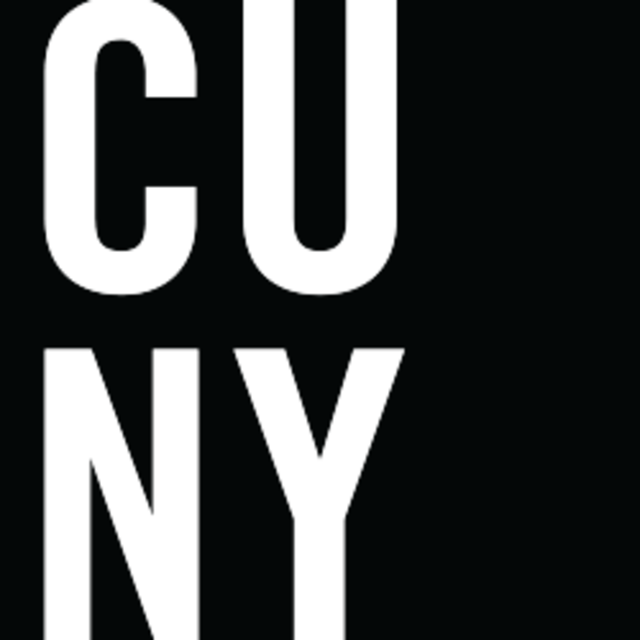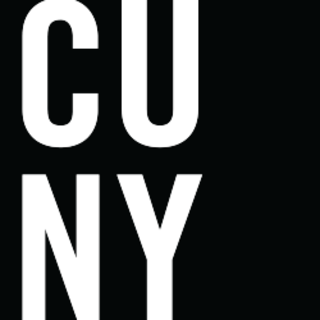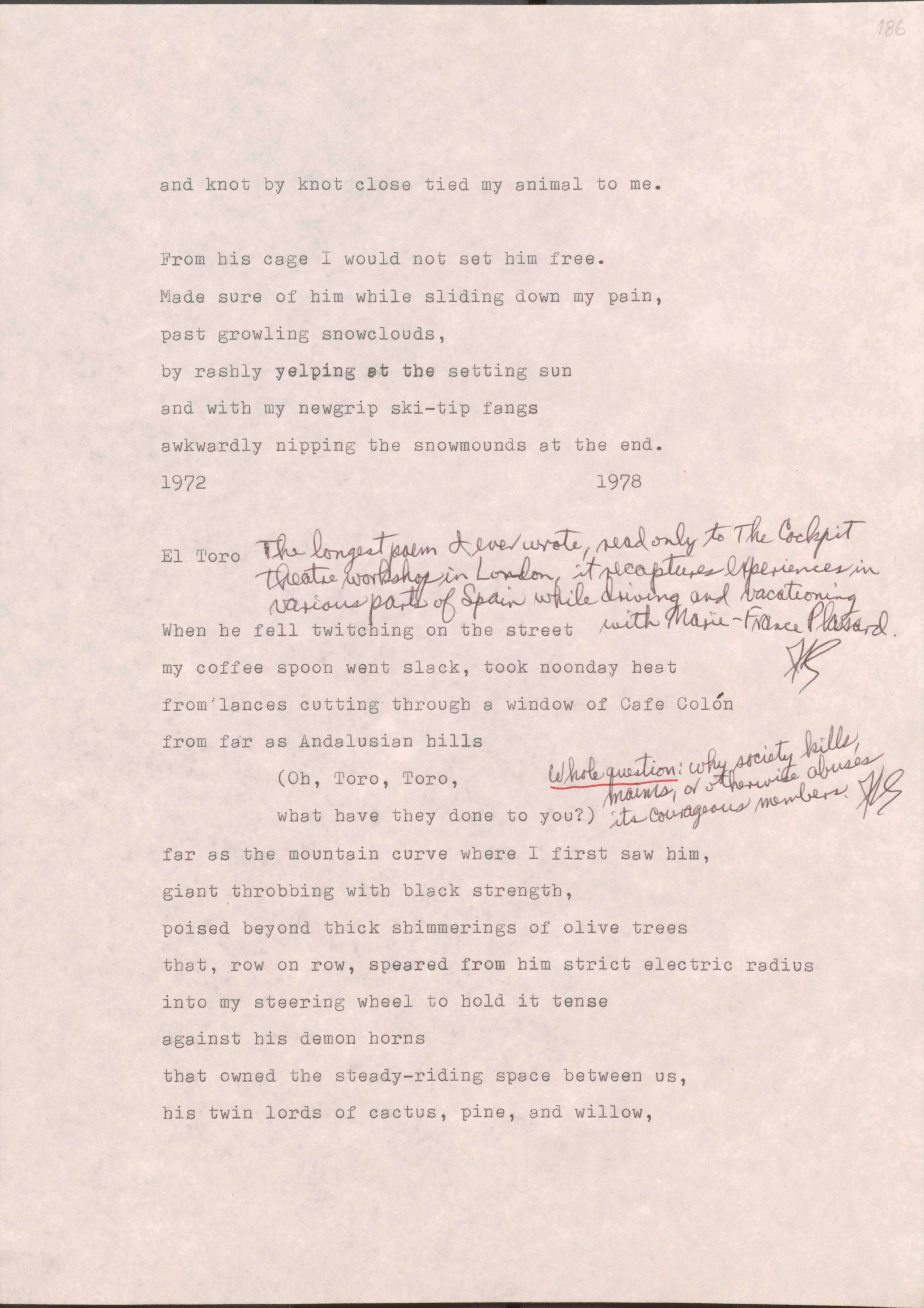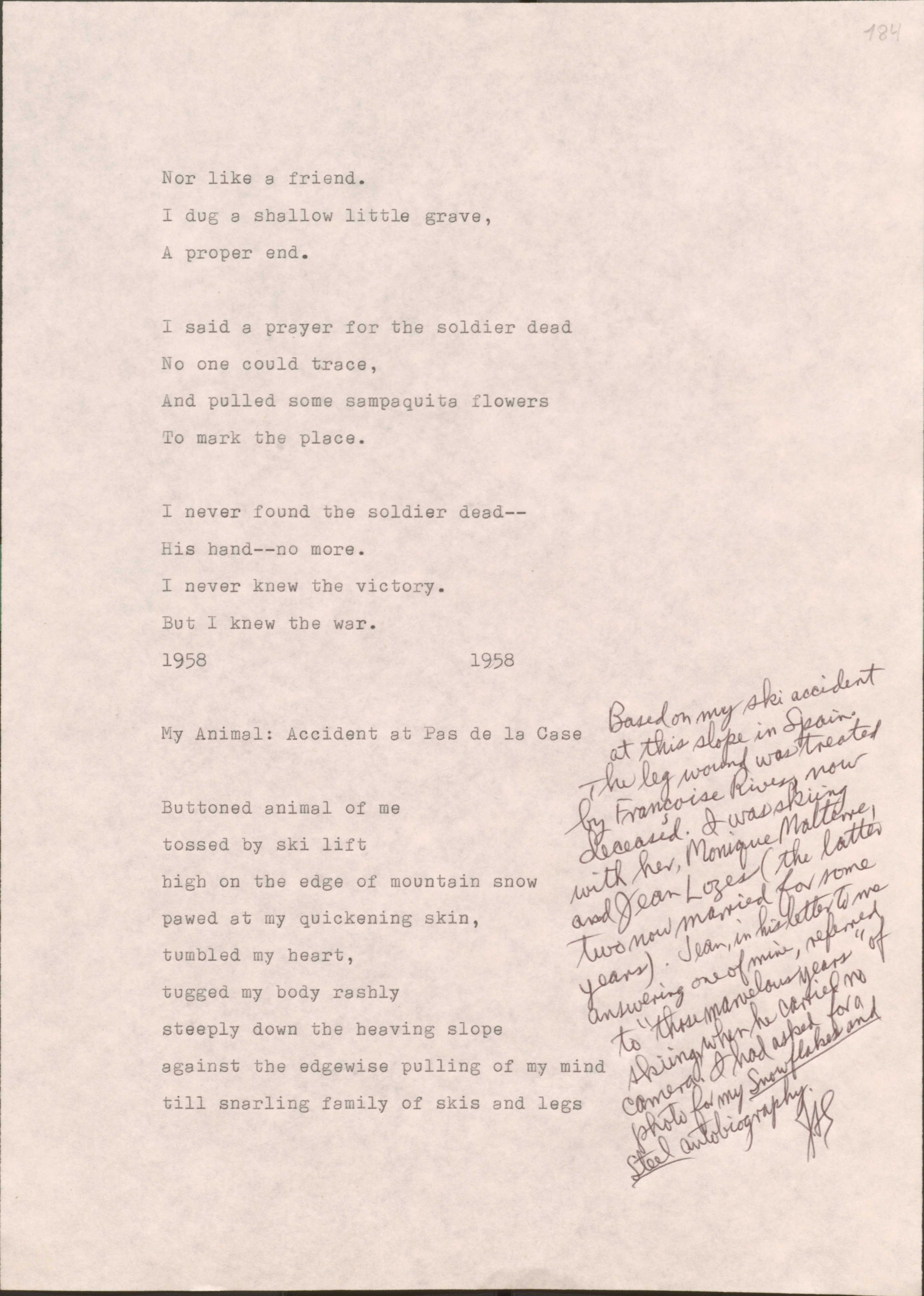Skip to main content
All Project Resources
26 resources. Showing results 11 through 20.
Uploaded Where Will Their Names Go Down? (with annotations)
Emmett Till (with annotations)
El Toro (with annotations) 5
El Toro (with annotations) 6
El Toro (with annotations) 3
El Toro (with annotations) 1
El Toro (with annotations) 4
Black Humor in France: for Etha (with annotations) 2
I Touched the Hand of a Soldier Dead (with annotations) 2


![ah crease his paper roun the
Bobby Seale
foldin it slow for his arm.
Them brothers
getting they vitamin D
getting they 7-de/hy/dro
cho/les/ter/ol--
yeah--
when that blackness come
they gonna live.
1970
19[undecipherable]
Black Man, 13th Floor
Hotel Ameridemocratogrando
12 floors below me, 12 above
stops nothing at my life
(this 13th floor
this legacy from black charioteers
swung low, stolen away
ridin middle passage
between the breathin floors
ashcakers brought to bed on clay
massa’s thirteeners](https://cuny.manifoldapp.org/system/resource/f/6/e/f6ec82ae-7f65-4f12-b43a-7a85bf00f73c/attachment/fe86336d9bd0fc2e85e9b07218d94721.jpg)
![134
[*“Where Will Their Names Go Down?”: Many bodies of Black people murdered in racist violence have been thrown into the three rivers mentioned--including the body of the boy in “Emmett Till.” The phrase “foundations of the world” comes from the author’s memory of Melville’s treatment of Pip’s terror in Moby Dick, afloat in the sea.*]
[*The title chosen reflects my writing a letter to the New York headquarters of the NAACP (unanswered) suggesting that the names of ordinary African Americans who had suffered violent or severe punishment for demanding their civil rights (especially voting rights then) be recorded in The Congressional Record.*)
Where Will Their Names Go Down?
Where will their names go down,
Our bloodied boys
Sunk link by link--
Socket, bone, and upright knee--
Muscled down dead
In the Tallahatchie, the Mississippi, and the Pearl?
Will they rise again
Except to velvet eyes
And rainbow fins that piece the deep?
Except to flush in streams that knife the seas
And rush their secrets through foundations of the world?
Right before our eyes
They sank, and pulled us to their knees.
From swollen prayers we rise to fiercely shake a chain of days
That blurry hang across that dying scrawl,
That mannish blood that moves
The Tallahatchie, the Mississippi, and the Pearl
1967
1968](https://cuny.manifoldapp.org/system/resource/4/7/7/477bf8a4-0019-4758-ab37-445bdd5b3e26/attachment/d1e75022c8d1f1fadca6aa1d17748f36.jpg)
![183
[*”Emmett Till”: The footnote on page 4 of Mailing #1 refers to the murder of the 14-year-old boy. The editors of the anthology Mandals: Literature for Critical Analysis first noted the legendary quality intended in this poem. Chaucer’s story of the rumored whistling by the murdered boy whose throat was cut in the ghetto, as remembered by the poet in this case, made the connection with Emmett Till that inspired the writing of the poem.*]
Emmett Till1
I hear a whistling
Through the water.
Little Emmett
Won’t be still.
He keeps floating
Round the darkness,
Edging through
The silent chill.
Tell me, please,
That bedtime story
Of the fair
River Boy
Who swims forever,
Deep in treasures,
Necklaced in
A coral toy.
1963
1963
1In 1955, Till, a fourteen-year-old from Chicago, for allegedly whistling at a white woman in Mississippi, was murdered by white men who tied a gin mill fan around his neck and threw his body into the Tallahatchie River.
[*The footnote in the widely-known The Norton Introduction to Poetry, 3d edn, 1986, reads: “In 1955, a fourteen-year-old from Chicago, was lynched in Mississippi for allegedly making improper advances toward a white woman.”*]](https://cuny.manifoldapp.org/system/resource/9/a/9/9a9bb7e2-4260-43d7-a93b-b61751891f6f/attachment/10c5511aa0d725d51e9e5a937fa5a868.jpg)
![190
But dusty roadware, glassy gadgets waiting--
three sign-bound piggies bearing olives
at the border of Seville serve up forgetfulness
of killer tusks and bristly hides;
[*used in an early poem, “Beyond the Clearing”, p.331*]
three desk-borne, tiny monkeys
joined for paperweight, in blotter,
are all we dare of King Kong raging in his pain;
[*road signs in Span and elsewhere*]
and everywhere the dragon selling gasoline,
his black and yellow tongue bereft of sting
(Oh, Toro, Toro
who shrank you down
and drank your blood?).
[*Reference to my abhorrence of viragoes who are also like Dame Van Winkle.*]
Was it lovely Eve, the bullring lady at home the shrew,
who hid her widowed eyes when knives dug at your hearth?
Was it the pinch-faced Leather Duke
who fled the gang fight, left his befriender bleeding,
and ghoulish grew to curse the backs of strangers?
[*See autobiog “A Force in the Field” for this bothersome confrontation with fascist law and courts in Spain of the early 1970’s.*]
Was it the Algeciras judge who held his cigarette like a torch
and stumble-followed it from room to room
holding his court? More likely, then, his tribe of tribers?
those gunhipped, grim-beaked motorcyclists
prick-eared and powered by hornhats aping El Toro?
Or was it the ones who snipped his mighty tail
or lopped his signal ears
or beat the horses to drag his body across the sand?
[Oh, Toro, Toro](https://cuny.manifoldapp.org/system/resource/4/5/7/457a0bf0-c34a-4b01-9947-25acf5c60efe/attachment/17573d9ac26b0cfaa27cac1e8a78331f.jpg)
![191
why so hard to pull into the light
a drinker of blood?)...
[*large social implication intended*]
No matter. Your ghost will stomp back up in the hills,
seed phantoms need the roads, the high spots
where the crown is hid.
And when mosquito prancers ride in pairs, in scores,
and force you down into their trumpety, their ring of sand,
[*Main theme again*]
stay terrible; feel only their glutting fair--
lest the burn of your blowing saliva,
the scald of your nosebleed fan,
the bloomful silence of your impossible fall
teach
nothing.
1978
1980
Tomorrow [*Perhaps the second poem I ever published (in a college anthology, America Sings). It did not take long for me to desert this kind of diction.*]
This day makes sport of my desire
And laughter echoes my lament.
My joy is ransomed by tomorrow,
To whose embrace my toil is bent.
Tomorrow will descent a queen
From this day’s own pure atmosphere,
Diademmed and royal gowned,](https://cuny.manifoldapp.org/system/resource/4/2/0/420c9776-c4b8-48d8-9fe0-40ebe7adde44/attachment/af526d6b2e7f2811eb75bf55bbf13a53.jpg)
![188
in flicking his cape, turning his back to bow
(Oh, Toro, Toro,
who has heard you fall?”
[*I did not like this toy at all.*]
I heard him lying twitching on the street,
or fancied Toro sound could come from such a toy,
a fist-sized bullock, cuddly black,
with bandalero-figured winding pin sewed into his back,
vulnerable to any childish thumb
or eager vendor like this one of left Café Colón,
unslung his ragged cardboard box
and loosed his hopping ware down to the stones
(Oh, Toro, Toro
what have they done to you?_
Yet, even Andalusian hills, spike-fruited, thorned,
had worn the course of the bravest always run:
Sierra Nevada access, high testing-ground where weakest fail;
Granada, the middle prize where beauty stays;
the climb and glide to Córdoba,
ancient Roman praise, still wise in Arab skill;
and then Seville,
from clever Santa Cruz to deep-eyed beggars on the squares
a capital worthy to fix a crown, command the river
that ties the see to hills El Toro roams,
and give him king-spot, eminence](https://cuny.manifoldapp.org/system/resource/6/5/8/658adb16-5dcb-4198-b128-952e433e31a2/attachment/3b9f879880c862fdf4ecbe347a3f797c.jpg)

![189
above the cypress, bamboo, orange,
and palms he surveys wild
(Oh, Toro, Toro,
who cut you down
into a toy?).
Stay wild and black; [*main theme of poem, of course*]
burn my eyes like weird-streaked sunset
where I drove into your heartbeats
poured like pellets whipping through the hillside trees,
my knuckles wheeling slow into those twilight spears
your devil-snorting horns flashed out;
gore from my mind each clinging phantom fact
those close-up ghosts near Andalusian roads thrust up
as I incredulous drove nearer, saw heroic blood
that minutes before had blazoned all your side
dull down to “Osborne Sherry & Brandy,” pink words for sale;
and I stiffened stupefied to glimpse you pointed at my side,
your frightful, glossy bulk reduced to tin-lid frailty:
[*My first view of roadside signs using a whole-bull image — a surprise and disappointment.*]
a momentary, nail-thin, signpost creature
breeze-blown and slapped askew
if not for humping metal stays and dingy studs
and rusty little props
(Oh, Toro, Toro
what have they done to you?)
Some silent ones could answer: not only Andalusian toys,](https://cuny.manifoldapp.org/system/resource/e/e/6/ee6d4f3c-13d4-4453-881a-2e3386c57596/attachment/da9cd2a48a280b263447a6adc5466855.jpg)
![169
“wash your face”
though dried to somber at the sign
of white so deftly brown again.
Final sip was “All depends
which room you’re in I guess;
just don’t come up behind me;
makes me nervous since the war”;
but didn’t say when the war began
nor dare count all those faces,
clean and white,
that came up from behind
1969
1970
169
A View from the White Helmet
[*”A View from the White Helment”: Written at the start of the 1960’s, when the African nations were beginning to become free. Note that some African leaders received their education at oxford.*]
[*Eleanor Roosevelt, the wife of the President of the USA, FDR, liked this poem, according to a City College colleague who knew her, William Turner Levy.*]
A glittering thing,
Africa-long
Approaches,
Gliding through legendary leaves,
Traversing ancient rivers.
A clattering thing,
Africa-long
Echoes,
Like bracelets of ivory](https://cuny.manifoldapp.org/system/resource/3/3/8/33889ae5-b46a-4ac4-a06e-48fe3e7015ef/attachment/15a456791f027855d0ffaeff2e29126a.jpg)
